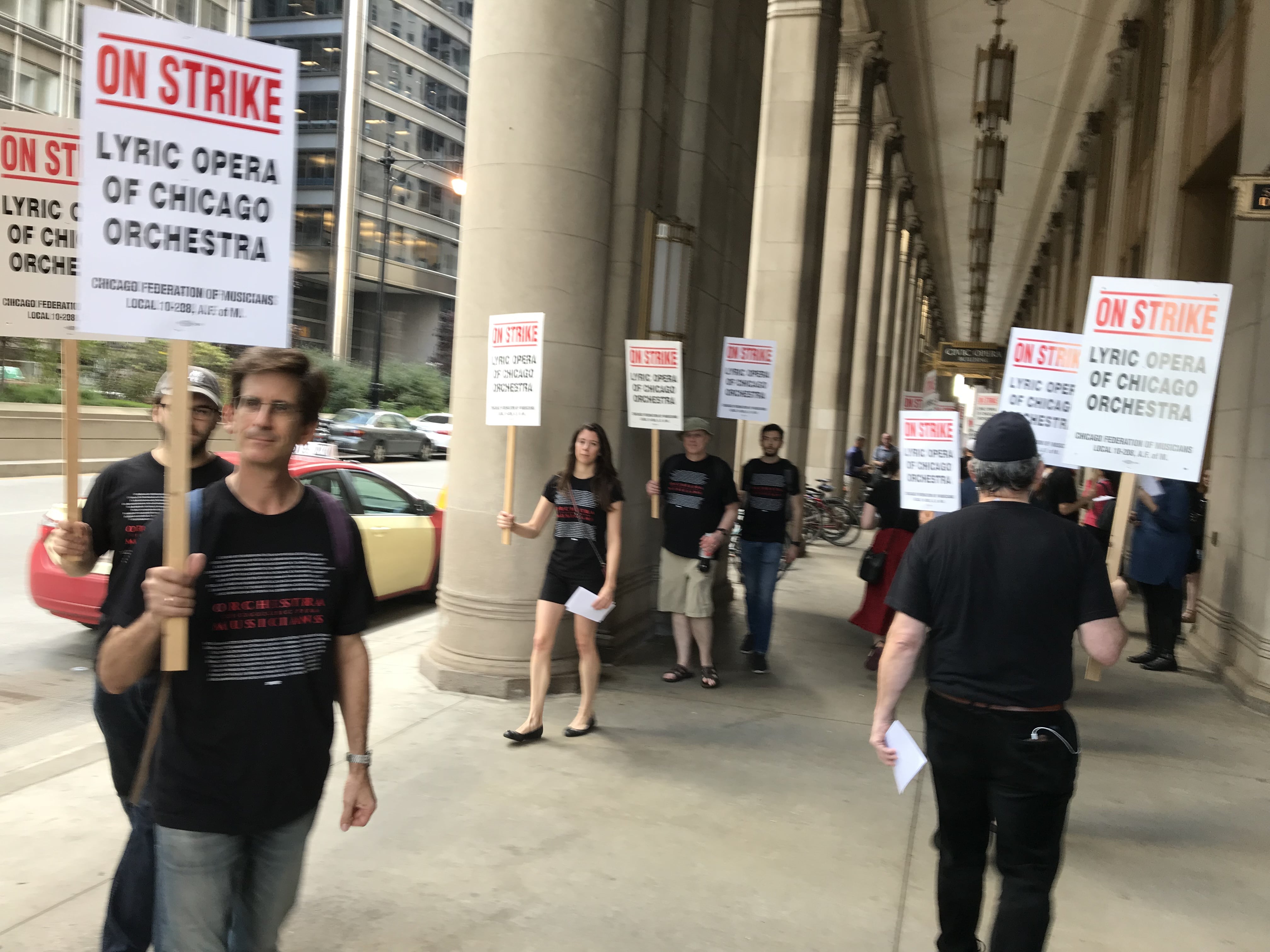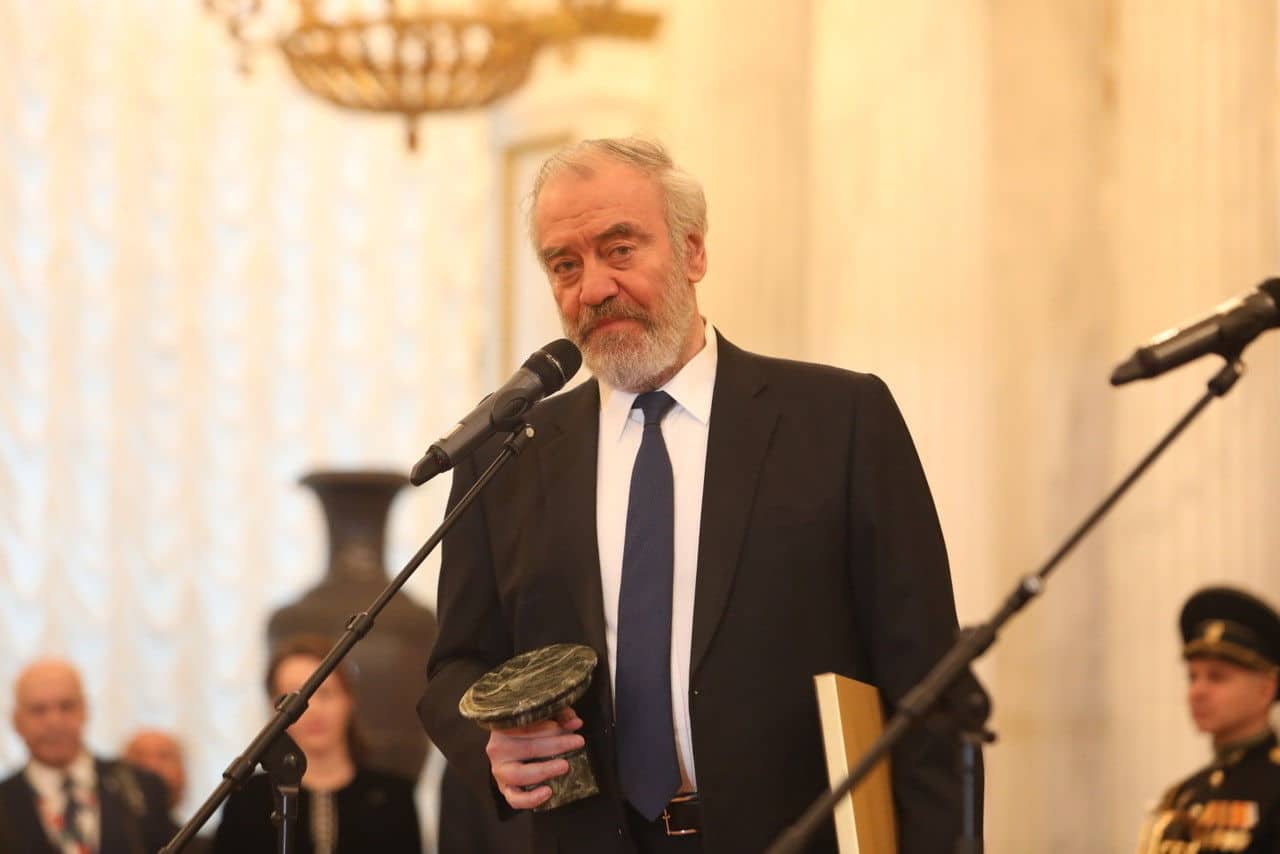Chicago rages again as Lyric Opera cancels auditions
mainThe war is not over yet in Chicago.
Notices have gone out cancelling auditions for advertised vacancies.
Here’s the letter:
Dear Section Violin Candidate,
Our sincere apologies to our viola audition candidates
– For the airline tickets you purchased
– For the hours you spent practicing opera excerpts
– For the coachings you paid for to prepare for this audition
– For the time you could have spent with family instead of learning unfamiliar repertoire
– For the time you could have dedicated to another audition for a differentorchestra — one that wouldn’t rescind its invitation with little notice
– For taking time off from work for your scheduled audition date here
– For inspiring hope about joining a world class opera company — one that unfortunately seems to now be operated by people with little respect for your time, talent, or money
– For our belief that this audition wouldn’t be cancelled on less than 2 weeks notice
We value everyone’s commitment to preparing for all auditions. We know the 10,000 hours minimum you put into learning your instrument, and we know it’s both exciting and terrifying to walk through the stage doors to an audition. In our recent contract negotiations and strike, we fought hard to keep this and several other positions from being eliminated. Ironically, it all fell on deaf ears.
We wish you all the success in the world. We’re very sorry your success can’t be with us.
The Chicago Lyric Opera Orchestra






Too bad. Glad the orchestra musicians are acknowledging the reality of the situation though.
If I were any of these violinists, I would sue to recoup any losses such as airline tickets and coaching as and lost work. They should band together and do a class action.
So, it’d be better in your eyes to go play an audition where no one had any chance of being hired?
No, but at least show some minimal respect for artists’ effort, time and money.
Cancelling and giving them the opportunity to try to recover some of the expenses does that more than having the audition.
While the musician response mentions the elimination of orchestral positions, nowhere does it mention that the inconvenience and expense of canceled auditions was a subject of bargaining during negotiations once the musicians agreed to a smaller orchestra going forward.
That would have been the appropriate time for either side to demonstrate if anyone actually values those who were preparing for those auditions.
Violin or viola? Can’t these people agree on anything?
Both. Because they canceled both their violin and viola auditions. Happy now?
They cancelled both their violin and viola auditions but posted the apologies to the viola audition candidates since the viola audition was going to happen rather sooner this year and the candidates must have already arranged their travel. The violin audition was scheduled to be in 2019.
Musicians have to pay their own freight to get to distant auditions for full-time positions?
Geez, if any prospective employer invited me for an interview and then said, “Oh by the way, we don’t pay for transportation or lodging,” they’d be on the reject pile in a flash. Wow.
This is the way our world works. In Germany if you advance in an audition, you might get train fare, but no overnight costs or anything else. If you rejected all such invitations you won’t have any possibilities at all.
yeah thats how it’s always been in this industry.
Yes, everywhere that I know of, musicians shoulder the expense of auditions. It’s an obscene system driven by the supply-and-demand imbalance between musicians and orchestras.
Yes, but remember that these people are not being invited, they asked if they could audition.
In general, I think you will find that prospective employers faced with a glut of candidates rarely pay for travel and accommodations except where they are actively recruiting specific candidates.
Well, OK, I guess the situation is somewhat different from ordinary office jobs. You have hear musicians play, and may go through a lot of candidates before you find the “right” one. With paper-pusher jobs, an employer can do phone or Skype interviews and then call in only the final few very serious candidates for an in-person interview.
If a playler lands a $130K/year job, no big deal on the travel expenses to get it. But for those who *don’t* land one right away, those expenses gotta be killer on a poor, struggling musician.
It’s a tough gig to get a good gig!
I submit that your “paper-pusher” is probably not a good comparison. Better would be a software engineer. Lots of people apply, the recruiting staff does a bunch of phone/Skype screening and weeds out a bunch of the weaker candidates. The stronger ones will come in and tie up a number of skilled employees for many hours while being challenged to “show their stuff” and they may be asked to come back for another day (or more) of interviews.
The difference is that the company hiring software engineers is more likely to cover some of the costs, because they can afford it and feel that doing so may give them a better result. Orchestra managements are more likely to see the situation as one where they will get plenty of good candidates without paying those costs, so why spend the money that they probably can’t afford to spend?
More and more very skilled players chasing after a shrinking pool of decent jobs…it’s going to be a buyer’s market. The interesting thing is that the orchestras still want to compete for the very best, so the salaries for those jobs continue to go up, despite the apparent oversupply of players.
“Yes, but remember that these people are not being invited, they asked if they could audition. ”
In the world of orchestra auditions, being “invited” to audition means they looked at your resume (and/or preliminary recording, if they required one) and decided it might be worthwhile to actually hear you in person. They “invite” you, but you still pay for your own transportation and lodging.
Yeah, from the perspective of someone not in the orchestra world, my statement is true. Even the people “invited to audition” generally approached the orchestra about the job, not the other way around. “You’ve been approved to audition” might be better terminology than “invited to audition” – the orchestras aren’t sending letters to individuals asking them to send in a resume and a tape for consideration to see if they should be given an audition slot.
No orchestra (in the US anyway) pays any candidate anything toward audition costs. If it’s a big enough orchestra where they might invite the final 2 or 3 people to come for a week and play a trial concert, they will usually pay them for playing, and sometimes assist with plane fare or lodging. But aside from such unusual circumstances, any audition means several hundred dollars out of the musician’s pocket.
…wow, what a arrogantly dismissive letter.
I guess its true that these days courtesy and simple human empathy are only for the “little people” who didn’t win that darn audition.
Perhaps the next step is to pay orchestra subs directly at minimum wage because lets face it they are only “Subs “.
The Lyric management form letter is hardly the worst of heartless corporate-speak. I mean, what can they really say? “When we invited you, we had openings. Now we don’t got the jobs. Next time we have openings, try again.”
This kind of letter goes out more often than you’d think in the non-arts business world.
You really should be more careful than to write such inflammatory headlines as this and the next story.
You must be new to Slippedisc
You must be new to Slippedisc…
Most of the things the musicians did specific to this audition can probably be reversed (e.g. get a refund on the plane ticket). Many of the others are things any aspiring musician would be doing anyway.
Do the musicians send out a similar letter when they hold an audition and fail to choose anyone?
“– For the hours you spent practicing opera excerpts
…
– For the time you could have spent with family instead of learning unfamiliar repertoire”
In a way, it’s nice that they acknowledge their part in making the audition uniquely awful.
I’ve never understood why opera orchestras require different excerpts. It forces everyone on the job market to either pass up an opportunity or spend a ridiculous amount of time learning excerpts that show exactly the same skill set as the standard rep does, only with different rep. The stuff that *is* actually unique to opera isn’t actually tested anyway.
Symphonic rep and opera rep are actually quite different, dont’ you know?
The rep *is* different, but my point is that excerpts are to test your skills; orchestral playing skills, which are the same. Showing the ability to play soft tricky spicatto, play loud and fast, rich and lyrical, one’s tone, these can be shown with any kind of excerpts and don’t have to be specific to opera. If someone can play a standard loud-n-fast passage from a Strauss tone poem well, I would venture they’ll play a similar passage from The Ring well too. No point in wasting everyone’s time when you could just ask for the standard Strauss tone poem excerpt everyone has learned anyway.
They don’t show exactly the same skills. Opera houses care a lot about Puccini and Verdi, for example, and most symphonies won’t care at all about your ability to play them with suitable style, but that opera committee will bounce you pronto. And if the skills are identical, and you have them, it should be no great trouble to prepare the excerpts. You’re certainly going to be preparing much more music in a more compressed timeframe if you win the job!
But if you don’t want to learn some different excerpts, don’t. The audition committee probably doesn’t really want to listen to you anyhow. I’d think long and hard about taking an opera orchestra audition if I didn’t already love playing opera music. I love playing opera, and I’m still not sure I’d want to do it as my primary focus. I know I’m not interested in playing in a ballet orchestra.